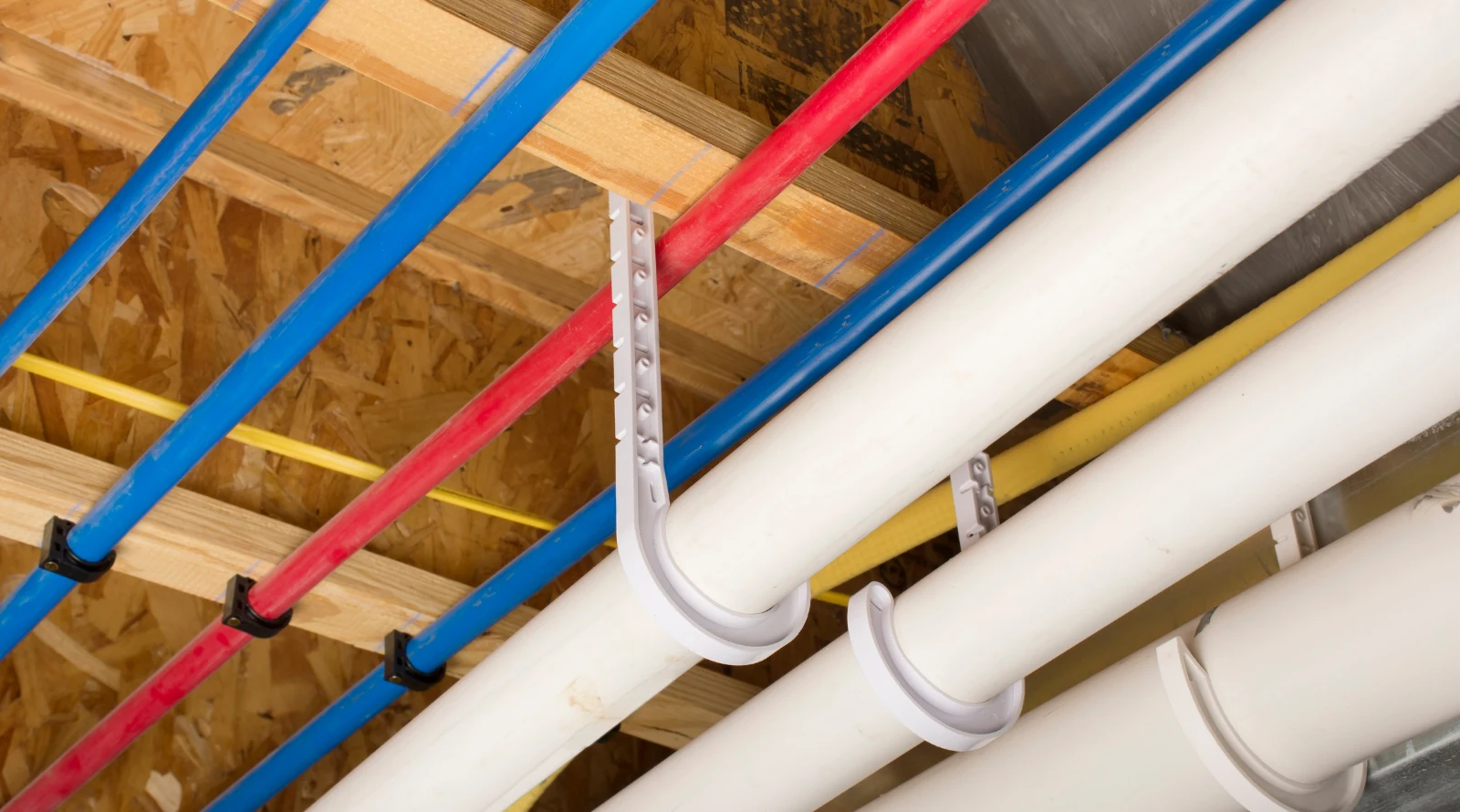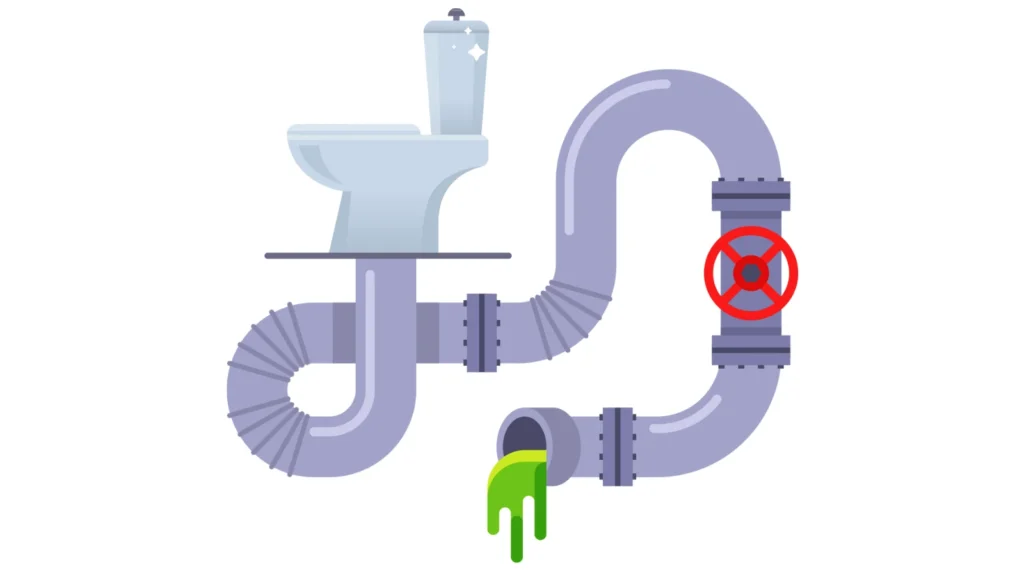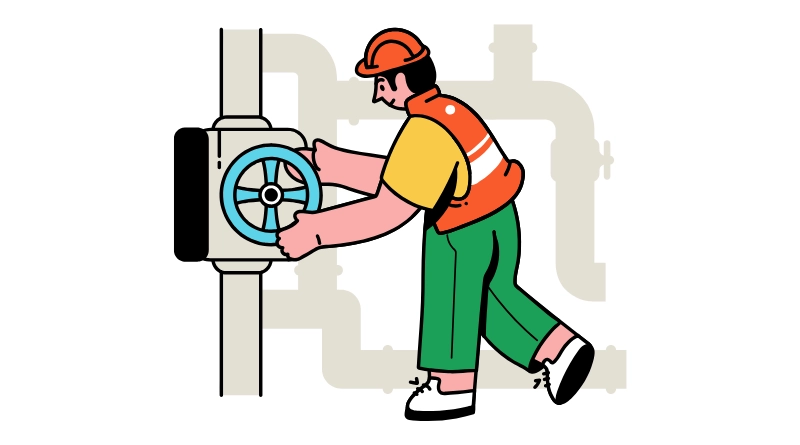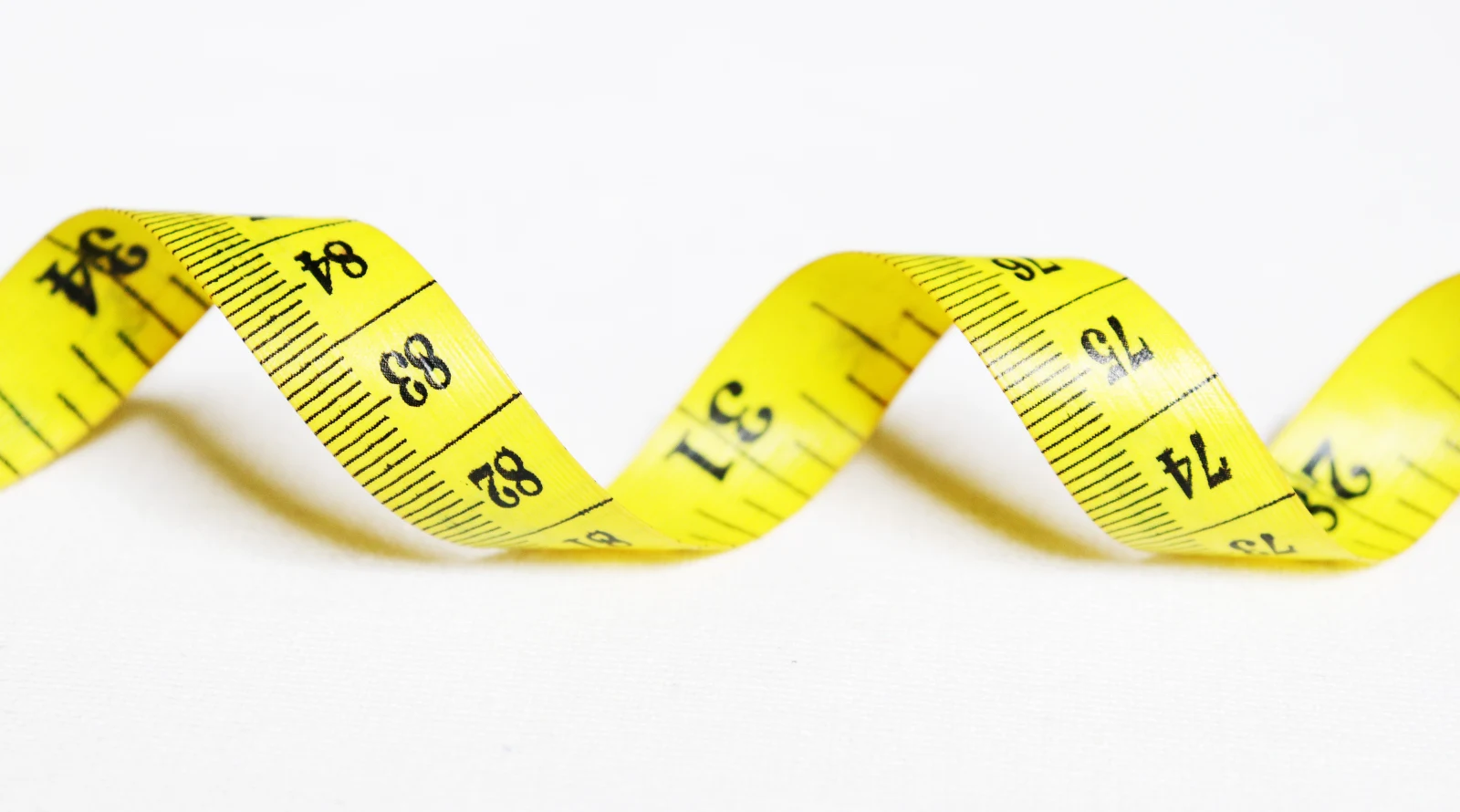Have you ever wondered how the water goes down the drain in your house? It’s thanks to these drain pipes hiding behind walls and under floors! Each place where the water goes down, like the shower, toilet, kitchen sink, or bathroom sink, has its specific drain pipe to ensure the water flows away.

These pipes aren’t all the same size, though. They’re different sizes to handle the different amounts of water they need to carry.
Let’s talk about showers first. The pipes connected to your shower need to be bigger because showers use a lot of water really fast. They have to handle all that water without getting clogged up. Then, there’s the toilet. It also has its own pipe, which is a bit larger than the others because toilets use more water in a single go.
Now, the sinks! The kitchen sink usually has a bigger pipe than the bathroom sink because it deals with food bits and stuff that can block the pipes, so it needs more space for water to flow easily.
Understanding these drain pipe sizes is important because it helps ensure the water goes away without causing problems like clogs or water backing up. Each drain pipe has its job based on how much water it usually deals with, and that’s why they come in different sizes.
Now, let’s talk about them one by one…
Toilet Drain Pipe Size

When you flush a toilet, the waste needs to travel through pipes to leave your home. The size of these pipes is crucial because if they’re too small, it’s like trying to fit a big object through a small hole—it can get stuck, causing clogs or slow drainage. The right drain pipe size ensures everything moves smoothly, preventing those annoying and often messy plumbing problems.
Figuring Out the Right Size
For most homes, the standard size for toilet drain pipes is about 3 inches wide. But there’s a bit of a range based on different rules that builders and plumbers follow. They consider things like how many toilets are connected to the same pipe and how far the waste has to travel. The more toilets there are or the farther the waste has to go, the bigger the pipe needs to be.
Imagine you have a building with different apartments or units. If there are only a few units, like 1 to 4, a 3-inch pipe is usually good enough.
But if there are more units, like 5 to 10, the pipe might need to be 4 inches wide for better flow. For even larger buildings with 11 to 20 units, a 5-inch pipe might be necessary to handle all that waste properly.
Here’s a general reference table for toilet drain pipe sizes based on the number of units:
| Number of Units | Minimum Toilet Drain Pipe Diameter |
|---|---|
| 1-4 | 3 inches |
| 5-10 | 4 inches |
| 11-20 | 5 inches |
| 21-50 | 6 inches |
| 51-100 | 8 inches |
| 101-250 | 10 inches |
| 251-500 | 12 inches |
| 501-1000 | 15 inches |
| Over 1000 | Consult a professional plumber |
This table covers a broader range of units and their corresponding recommended minimum drain pipe diameters according to general plumbing guidelines. However, it’s crucial to emphasize that local building codes and specific construction requirements might deviate from these general recommendations, warranting professional consultation for precise sizing.
Toilet Drain Pipe Size Calculator
What Size Drain Lines For A Shower, Sink, And Toilet? - by The Excellent Laborer
Shower Drain Pipe Size

When it comes to building or renovating a bathroom, one crucial yet often overlooked aspect is the shower drain pipe size. While it may not be the most glamorous feature, selecting the correct size for your shower drain pipes is essential for ensuring proper drainage and preventing potential issues down the line. If it’s too small, water might not drain well, causing problems. If it’s too big, it might take up unnecessary space.
Shower drain pipes typically come in standard sizes. The most common sizes for residential showers are 1.5 inches and 2 inches in diameter. Larger sizes, such as 3 inches, are used for specialized or high-flow systems.
Here's a breakdown of the common shower drain pipe sizes:
| Pipe Size (in inches) | Common Usage | Ideal Applications |
|---|---|---|
| 1.25 | Less common, usually for older installations or specific requirements | Limited space or older plumbing systems |
| 1.5 | Standard for most showers | Residential bathrooms, typical shower installations |
| 2.0 | Better for larger showers or high flow rates | Spacious showers, multiple showerheads, high-flow systems |
| 3.0 | Used for specialized or high-flow systems | Custom showers, commercial settings, spa-like setups |
This provides a clearer picture of the various pipe sizes and their typical applications, helping you make more informed decisions when selecting drain pipe sizes for your showers.
Shower Drain Pipe Size Calculator
Why Size Matters
The size of the pipe depends on a few things:
- How big your shower is: A bigger shower might need a larger pipe to handle all the water.
- How much water comes out of your shower: Some showers have more water flowing through, and they might need a bigger pipe to handle it.
- Rules and laws: There are rules about how big pipes should be in different places. It's important to follow these to make sure everything works well and is safe.
Bathroom & Kitchen Sink Drain Pipe Size

Do you ever think about the pipes under your sinks? They’re pretty important! For both bathrooms and kitchens, picking the right pipe size is a big deal. It’s all about making sure water flows smoothly and doesn’t cause any plumbing problems.
Standard Drain Pipe Sizes for Bathroom Sinks
Bathroom sink drain pipes are typically available in various sizes catering to different setups:
| Pipe Size (in inches) | Common Usage | Ideal Applications |
|---|---|---|
| 1.25 | Not so common nowadays, usually found in older homes or where space is tight. | Compact bathrooms, tight spaces |
| 1.5 | The usual size for most bathroom sinks. It’s pretty standard and works well. | Residential bathrooms, typical installations |
| 2.0 | If you have a bigger or fancier bathroom sink, this size might be better to handle more water. | Spacious bathrooms, multiple basins |
Each size accommodates diverse bathroom sink designs, from small powder rooms to larger master bathrooms with multiple basins.
Standard Drain Pipe Sizes for Kitchen Sinks
When it comes to kitchen sinks, various drain pipe sizes cater to different requirements:
| Pipe Size (in inches) | Common Usage | Ideal Applications |
|---|---|---|
| 1.5 | Standard for most kitchen sinks in homes. | Regular kitchen setups |
| 2.0 | Good for bigger sinks or ones used a lot. | Larger kitchens, frequent use |
| 2.5 | Occasionally used for heavy-duty or commercial setups | Commercial kitchens, heavy usage, industrial settings |
Kitchen sinks, often dealing with more debris and heavier usage, benefit from slightly larger pipes to handle increased water flow and waste.
Sink Drain Pipe Size Calculator
Getting the right size for the pipes under your bathroom and kitchen sinks might not seem like a big deal, but it's super important for keeping things working well. By thinking about the size of your sink and how much you use it, you can pick the perfect pipe size.
And remember, we always recommend asking an expert or checking the rules if you're not sure about sizes or how to put the pipes in.
Final Thoughts
Understanding the sizes of pipes for your bathroom and kitchen is super important for your home's plumbing. From the shower to the sink, each part needs a specific pipe size to work well. Knowing these sizes helps you fix problems and plan any changes or upgrades in your plumbing.
Remember, the pipes for your shower, toilet, and sinks are not all the same size. They're designed differently to handle the water flow from each fixture. So, if you ever have a clog or need to replace a part, knowing the right pipe diameter can make things much easier.
By learning about these sizes, you'll be better prepared to care for your home's plumbing needs. Whether it's a small fix or a big renovation, having this knowledge ensures your plumbing stays in good shape. So, pay attention to these sizes – it's the little details that keep everything running smoothly!
RECOMMENDED PLUMBERS TO DEAL WITH DRAIN PIPES:






